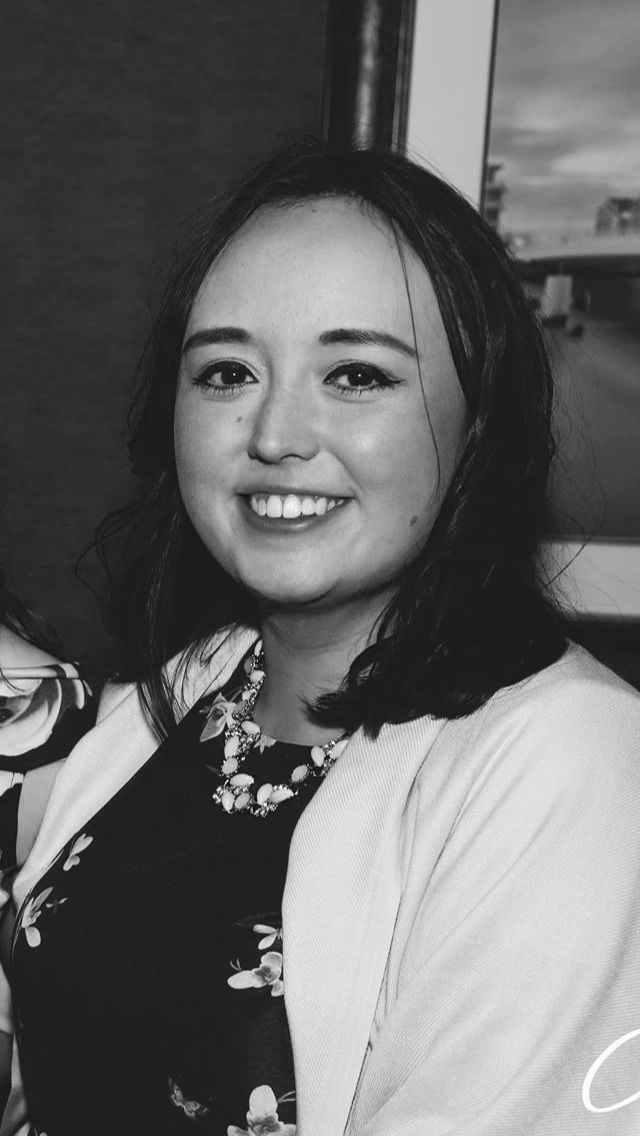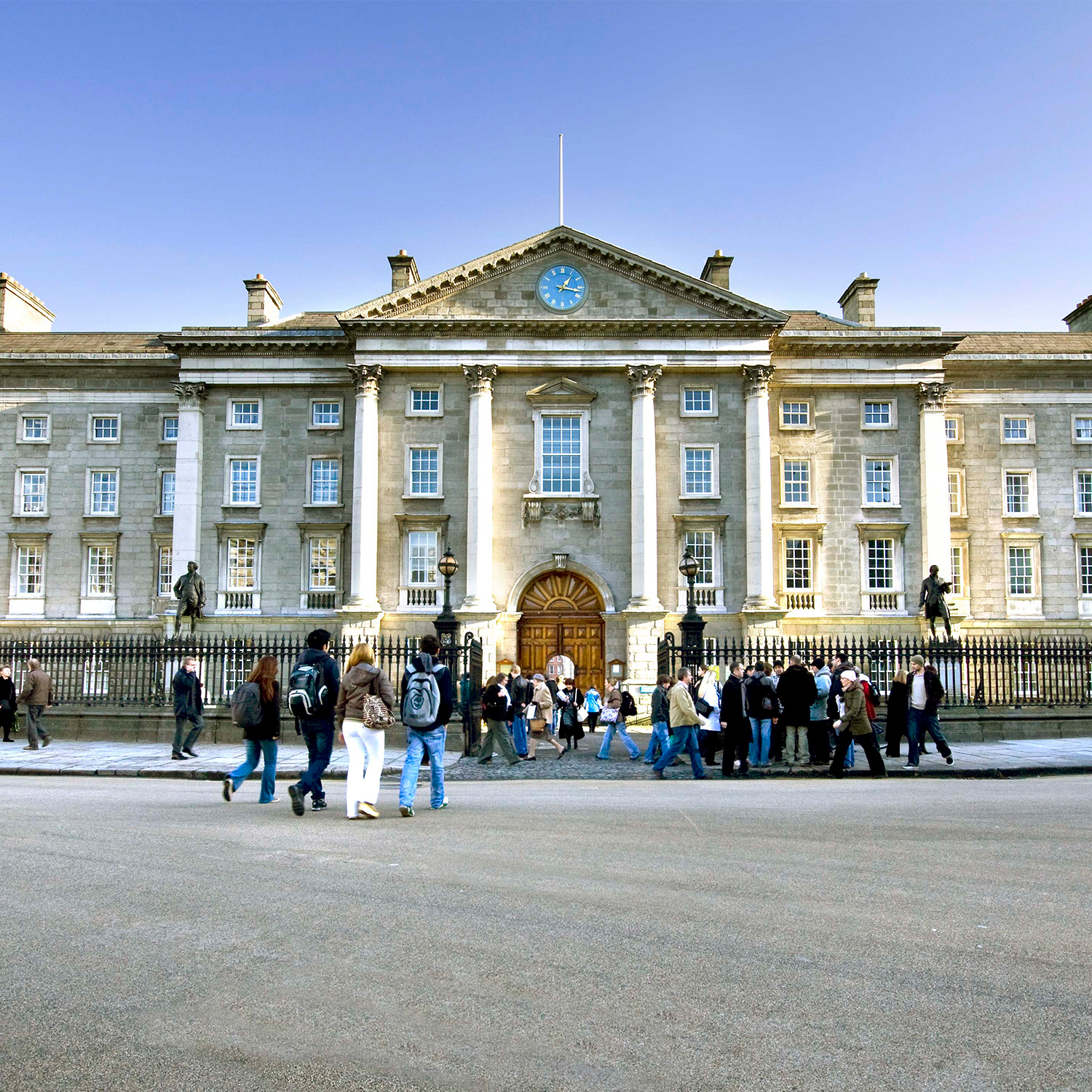Ireland
Ireland
Welcome to Trinity College Dublin, Ireland’s leading university, which has been inspiring generations of global citizens and global leaders for over 400 years. Join our 22,000 students and work with some of the most influential and reputable professors in their field.
Undergraduate Requirements
Trinity is delighted to accept students who have completed the below qualifications from the Republic of Ireland
Recognised School Leaving Qualifications:
Irish Leaving Certificate
QQI Qualifications (for specific courses)
For more detailed information on admission requirements for these examinations systems please see our admissions guidelines.
Minimum Requirements
The minimum matriculation requirements for students presenting the Irish Leaving Certificate are:
1) six subjects, three of which must be at grade 5 or above on higher Leaving Certificate papers or at least grade 5 in the University Matriculation examination
2) These six subjects must include:
A pass in English
AND
A pass in mathematics (or foundation-level mathematics (see note 2)) and a pass in a language other than English
OR
a pass in Latin and a pass in a subject other than a language
Additional Notes and Restrictions
- A pass means grade O6/H7 or above on ordinary or higher papers in the Leaving Certificate and grade 7 or above in the University Matriculation examination.
- Mathematics at foundation-level is acceptable for minimum entry requirements only, for all courses except nursing or midwifery courses. Irish at foundation-level is not acceptable for minimum entry requirements, course requirements or for scoring purposes.
- 3. Students may combine grades achieved in different sittings of their Leaving Certificate/Matriculation examinations for the purpose of satisfying minimum entry and/or course requirements, but not for the purposes of scoring. This is not permitted for Medicine(See the full details of specific course requirements.)
- Combinations of Leaving Certificate subjects not permitted:
- Physics/Chemistry may not be presented with physics or chemistry
- Biology and agricultural science may not be presented as two of the six subjects required for minimum entry purposes, and they may not be presented together to satisfy course specific requirements. However, both may be used for scoring purposes.
- Art and music may not be offered as two of the three higher Leaving Certificate grades for minimum entry requirements but both may be used for scoring purposes.
Ordinary Degrees and Diplomas
| Course Code | Name | Specific subjects required | Available places in 2016 |
|---|---|---|---|
| TR801 | Dental nursing (diploma) | See notes A & C | 25 |
| TR802 | Dental hygiene (diploma) | See notes B & C + Restricted entry | 8 |
| TR803 | Dental technology (ordinary degree) | See notes A & C + Restricted entry | 6 |
Notes
- Applicants are required to present six subjects, including English, mathematics and one of physics, chemistry, biology, physics/chemistry or agricultural science. Of the six subjects presented two must be of a standard of at least grade 4 on ordinary Leaving Certificate papers. The remaining four subjects must be presented to a standard of at least grade 6 on ordinary Leaving Certificate papers.
- Applicants are required to present six subjects, including English, mathematics and one of physics, chemistry, biology, physics/chemistry or agricultural science. Of the six subjects presented two must be of a standard of at least grade 4 on higher Leaving Certificate papers. The remaining four subjects must be presented to a standard of at least grade 6 on ordinary Leaving Certificate papers.
- Applications may also be considered from mature applicants who do not satisfy the academic entry requirements but can demonstrate appropriate experience relevant to the course.
Applications for restricted entry courses must be submitted to the CAO by 1 February of the proposed year of entry.
Leaving Certificate scoring system
| Grade Level | Higher Level | Ordinary |
|---|---|---|
| 1 | 100 | 56 |
| 2 | 88 | 46 |
| 3 | 77 | 37 |
| 4 | 66 | 28 |
| 5 | 56 | 20 |
| 6 | 46 | 12 |
| 7 | 37 | n/a |
- Bonus points for higher level Mathematics
All students presenting H6 or above in higher level Mathematics will have 25 points added to their score for Mathematics. The bonus points will only be relevant where Mathematics is scored as one of a student's six best subjects for points purposes.
An applicant's six best results from one sitting of the Leaving Certificate will be counted for scoring purposes. Applicants may combine results from the Leaving Certificate and the Trinity Matriculation examination of the same year for scoring purposes.
Leaving Certificate Vocational Programme Link Modules are accepted for scoring purposes only and are awarded the following points: Distinction 66, Merit 46, Pass 28.
Students who have not completed the above qualifications can apply using one of the international examinations recognized by Trinity.
In addition, to qualify for admission to a degree course at the University you must:
- Meet the minimum matriculation requirements (pass grades in English, Mathematics, a language other than English, and a full set of valid subjects for your examination system)
- Display a high level of competence in the English language in one of the examination systems recognised by Trinity College Dublin.
Details on accepted English proficiencies are available on our Admission Requirements page
- Satisfy course specific requirements. Some courses will have additional requirements and restrictions for admission.
They will be detailed on the relevant course page at and on our Admission Requirements page
- Meet competitive standards for admission to the course.
Please note that posted scores are minimum entrance requirements only and do not guarantee admission. Where places are competitive, a student must have excellent examination results to qualify for a place on their preferred course.
These standards are indicative only and final assessment will be made by Trinity's Academic Registry.
Important note on your application
Applicants from your country will normally be defined by Trinity as EU applicants; this is based on residency rather than nationality.
Your EU/Non-EU status is an important part of your application and it is your responsibility to determine your correct status before making an application, as the method of application and requirements will differ.
Determining EU/Non-EU status (Undergraduate)
Determining EU/Non-EU Status (Postgraduate)
There are many different ways to come to University and Trinity encourages applicants from all backgrounds and circumstances to apply. For more information on alternative paths to Trinity, such as advanced entry transfers,
please see our guide to non-standard applications here
Postgraduate Entry Requirements
Postgraduate work in Trinity is academically challenging and the University has high academic entry requirements.
Applicants will need to:
• hold at least a 2.1 honors degree from an Irish university or equivalent result from a university in another country.
Determining EU/Non-EU Status (Postgraduate) The fees you will be expected to pay to attend Trinity College Dublin are determined by a number of factors. For more information on how to determine your course fees, and methods of payment, please see our detailed information on Fees and Finances. Undergraduate Fees and Finances Postgraduate Fees and Finances For more information on scholarship, funding and grant opportunities, please see below. General Undergraduate Scholarships and Funding General Postgraduate Scholarships and Funding Our EU Recruitment Team is here to help you find out more about Trinity College Dublin, through on campus Open Days, visits to Trinity with your school, assistance for your guidance counsellors and more.
For more information please see Visit Our Campus
• display a high level of competence in the English language in one of the examination systems recognised by Trinity College Dublin. Details on accepted English proficiencies are available on our Admission Requirements page
Some courses may require higher standards or require you to take further tests or attend an interview. More detailed requirements for each course are listed on the relevant course page
If you have questions about the specifics of the admission requirements for a given course, or about the course itself, you should contract the course coordinator directly using the contact information available on the courses page.Fees, Funding, Scholarships
Trinity College Dublin offers a number of scholarship opportunities for prospective and current students interested in study or research at Ireland's leading university. Since its foundation in 1592, Trinity College Dublin has sought to assist students of limited means and reward academic achievement. Students are always encouraged to explore external funding options in their home countries.Meet us at your school or on campus
Contact us
Click below to contact our Regional Managers for Europe. We are always happy to help answer questions about our programmes, entry requirements and student life.
Student Testimonials
-
 Dearbhail KentLatin and Philosophy
Dearbhail KentLatin and Philosophy
IrelandTrinity has been teaching both of my chosen subjects of Latin and Philosophy since its foundation, over 400 years ago. One of the many reasons that I chose Trinity is because it is Ireland’s leading university. Trinity also has a very strong sense of community. Building relationships with my classmates and lecturers and becoming involved in societies was key to my self-development, confidence and academic success. Trinity not only creates world leaders but fond college memories to look back on.
-
 Kenny OlaniyLaw and Business
Kenny OlaniyLaw and Business
IrelandI chose to study Law and Business at Trinity as I was very interested in the course and I knew that Trinity was one of the best colleges in the world. The lecturers on my course were great and really engaging but be ready to do a lot of independent work. The social scene at Trinity, particularly with clubs and societies, was so much fun. I got involved with a few different ones – going to events and eventually running the events. I’ve made some of the best friends by meeting different people from different backgrounds at college.
-
 Tara Turner-HeaneyGenetics
Tara Turner-HeaneyGenetics
IrelandI chose to study at Trinity because of the endless possibilities that Trinity gives you, both in terms of future job opportunities and its world renowned education. The amazing lecturers are all experts in their field. Trinity offers a strong sense of community and I love how the campus is smaller than other colleges, so you are always guaranteed to bump into someone you know. I also love the history of this college and am able to walk in the footsteps of many famous and inspiring alumni, such as Mary Robinson.
-
 Meabh HughesPhD in Geology
Meabh HughesPhD in Geology
IrelandI am delighted that I chose Trinity for my Postgraduate study. Being guided by experts and colleagues, meeting and learning from accomplished researchers from other Universities, as well as from Trinity College Dublin, is an opportunity I am glad I didn’t let pass me by! The energizing academic environment is enhanced by the informal coffee mornings and lunch-time talks. The forming of a work-life balance is further encouraged by the wider Trinity community with seemingly endless clubs and societies to get involved in!








